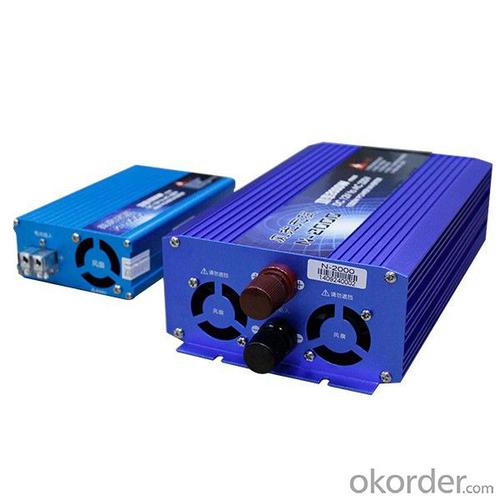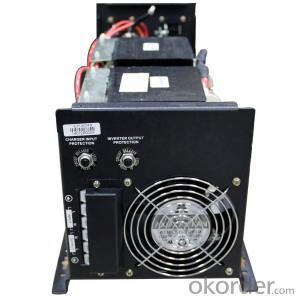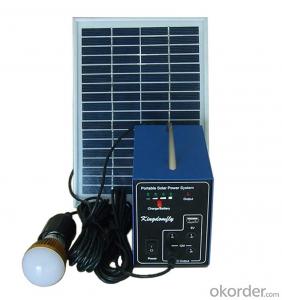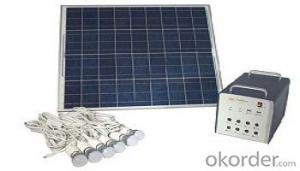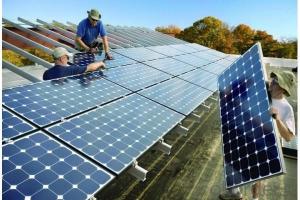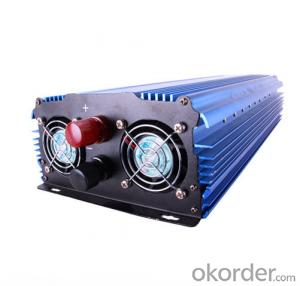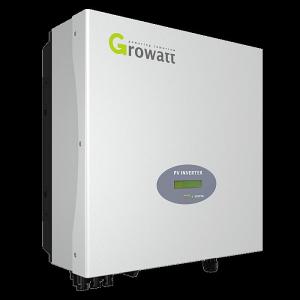Marine Solar Energy Systems Compatible Car Inverter / Home Appliance Reasonable Design Car Inverter 12V 220V
- Loading Port:
- China main port
- Payment Terms:
- TT OR LC
- Min Order Qty:
- 20 carton
- Supply Capability:
- 10000 carton/month
OKorder Service Pledge
OKorder Financial Service
You Might Also Like
Home Appliance Reasonable Design car inverter 12v 220v
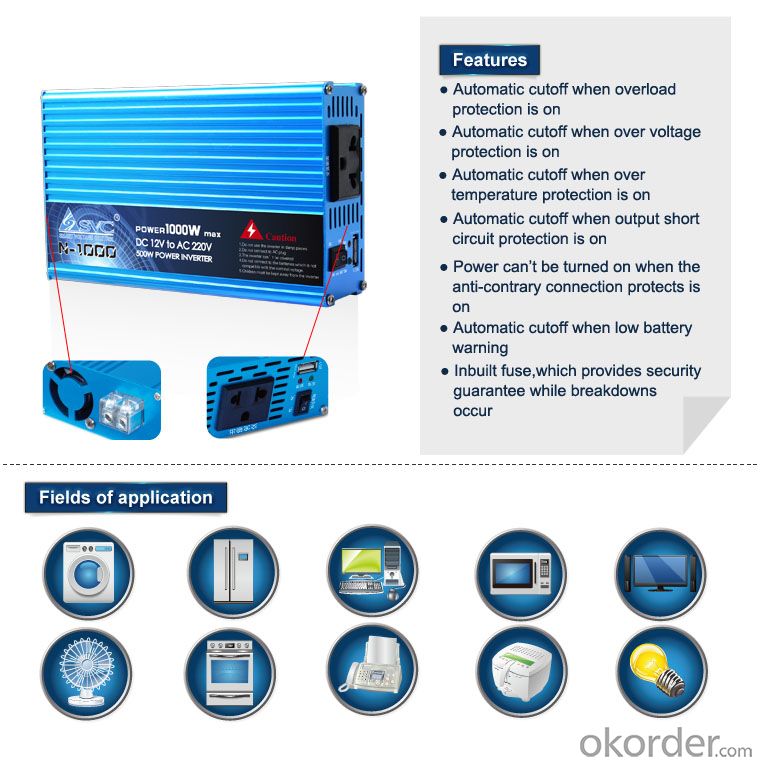
Product introduction
ART-P series, PWM wave and rated power from 300w to 3000w, designed to meet different requirements in the middle market. Power supply by converting DC 12V/24V/48V (for example, batteries of cars, ships and accumulator etc.) to AC 115V/230V, and suitable for electrical equipment less than 3000W (e.g. cellphone, laptop, and solar power system etc.)

| Model | ART-P300 | ART-P500 | ART-P1000 | ART-P2000 | ART-P3000 |
| Rated power | 300W | 500W | 1000W | 2000W | 3000W |
| Max power | 600W | 1000W | 2000W | 4000W | 6000W |
| INPUT | |||||
| Input voltage | 12V/24/48VDc | ||||
| OUTPUT | |||||
| Output voltage | 115V/230VAc(1±5%) | ||||
| Output wave form | PWM | ||||
| Output frequency | 50/60Hz | ||||
| FUNCTION | |||||
| USB Port | 5V 500mA(optional) | ||||
| No-load current | <0.5a< span=""> | ||||
| Efficiency | >90% | ||||
| PROTECTION | |||||
| Protections | overload protection, input overvoltage protection, input under-voltage protection, over temperature protection, Buzzer protection and Intelligent control. | ||||
| PHYSICAL | |||||
| Unit dimension (mm) | 120*100*50mm | 165*100*50mm | 240*155*70mm | ||
| Unit weight (kg) | 0.45(Kg) | 0.60(Kg) | 0.65(Kg) | 1.2(Kg) | 1.42(Kg) |
| Packing details | Color box(20pcs/ctn) | Color box(12pcs/ctn) | |||
| ENVIRONMENT | |||||
| Environment of performance | Temperature 0℃~40℃, Humidity 20%~90% | ||||
| Noise level | Less than 40dB | ||||

Feature
1. Design of aluminum case ensures its excellent cooling abllity and sturdiness, also extending service life.
2. Car cigarette lighter wire and clip wire (optional) for using in car or be used for battery.
3. USB interface (optional); two LED lights for showing the working or protecting status; Button switch to control inverter.
- Q: How do solar energy systems affect the resale value of a home?
- Solar energy systems can have a positive impact on the resale value of a home. Studies have shown that homes with solar panels tend to sell for a higher price and at a faster rate compared to homes without solar energy systems. This is because potential buyers are attracted to the cost savings and environmental benefits associated with solar power. Additionally, solar panels are seen as a valuable asset as they provide a reliable and renewable source of energy.
- Q: Can solar energy systems be used in off-grid locations?
- Yes, solar energy systems can be used in off-grid locations. In fact, they are an excellent solution for providing electricity in remote areas where access to the power grid is limited or non-existent. Off-grid solar energy systems can generate electricity through photovoltaic panels and store it in batteries for use during times when the sun is not shining. This enables individuals and communities in off-grid locations to have a reliable and sustainable source of energy.
- Q: Can solar energy systems be used in disaster relief efforts?
- Indeed, solar energy systems have proven to be effective in disaster relief endeavors, gaining popularity and significance in such situations. When calamities strike, they frequently disrupt the electricity supply, leaving affected areas devoid of power for extended periods, ranging from days to even weeks. This absence of electricity hinders relief efforts, impeding the provision of basic necessities such as lighting, medical care, communication, and clean water. In contrast, solar energy systems offer a dependable and sustainable power source in these circumstances. Consisting of solar panels that convert sunlight into electricity, these systems can energize various devices and appliances. They can be rapidly deployed to disaster-stricken regions, providing immediate access to electricity without relying on conventional power grids. There are numerous advantages to employing solar energy systems in disaster relief operations. Firstly, solar power is renewable and abundant, ensuring a continuous electricity supply even during prolonged emergencies. Secondly, these systems typically require minimal maintenance, decreasing the need for constant fuel supply or repairs. Consequently, they are more cost-effective and reliable in disaster-prone areas. Solar energy systems can be utilized in various ways during disaster relief endeavors. For instance, they can power mobile charging stations, enabling individuals to charge their phones and stay connected with their loved ones. Solar-powered lighting can illuminate temporary shelters, hospitals, and walkways, enhancing safety and security for victims and aid workers alike. Additionally, solar energy can power water purification systems, guaranteeing access to clean drinking water in regions where water infrastructure has been damaged or contaminated. Moreover, solar energy systems can be seamlessly integrated into existing relief infrastructure. Hospitals, schools, and community centers can have solar panels installed on their roofs, ensuring a reliable electricity source for critical operations. This reduces reliance on diesel generators or other fossil fuel-powered alternatives, which tend to be costly, noisy, and emit harmful pollutants. In conclusion, solar energy systems are immensely advantageous in disaster relief efforts. They offer a sustainable and dependable power source, facilitating essential services and enhancing overall relief operations. As the world grapples with increasingly frequent and severe natural disasters, the utilization of solar energy systems in disaster relief will continue to gain significance.
- Q: Can a solar energy system be installed in areas prone to hailstorms?
- Yes, solar energy systems can be installed in areas prone to hailstorms. However, it is essential to consider certain factors to ensure their durability and resilience against hail damage. This includes using high-quality materials, such as tempered glass for solar panels, and proper installation techniques. Additionally, some solar panels are specifically designed to withstand hail and extreme weather conditions, providing further protection.
- Q: What is the role of solar tracking systems in maximizing solar energy capture?
- The role of solar tracking systems in maximizing solar energy capture is to optimize the positioning of solar panels or collectors to track the movement of the sun throughout the day. By continuously adjusting the angle and orientation of the panels, solar tracking systems ensure that they receive maximum sunlight exposure, resulting in enhanced energy generation and improved overall efficiency of solar energy systems.
- Q: Can a solar energy system be installed on a floating platform?
- Indeed, it is possible to install a solar energy system on a floating platform. Floating photovoltaic (FPV) systems, also known as floating solar power plants, are becoming popular as an innovative solution to make the most of water bodies for solar energy generation. Typically, these platforms are built using buoyant materials like plastic or concrete, enabling the solar panels to float on the water's surface. There are various advantages to installing solar panels on floating platforms. Firstly, it allows for the utilization of underused water bodies such as reservoirs, dams, and ponds, hence optimizing land use. Secondly, the water beneath the solar panels helps cool them down, enhancing their efficiency and overall energy output. Additionally, the floating platforms can reduce evaporation from the water surface, thus conserving water resources. Floating solar energy systems also offer environmental benefits. By harnessing water bodies for solar energy generation, these systems decrease the need to clear land for large-scale solar installations, thereby preserving ecosystems and biodiversity. Moreover, they can aid in reducing algae growth and improving water quality by shading the water surface and limiting sunlight penetration. While floating solar systems present unique engineering challenges, such as anchoring and stability, technological advancements have made them increasingly feasible and cost-effective. Several countries, including Japan, China, and the Netherlands, have successfully implemented floating solar power plants, demonstrating their potential as a sustainable energy solution. In summary, it is indeed possible to install a solar energy system on a floating platform. These floating photovoltaic systems offer numerous benefits, such as optimized land use, increased energy efficiency, water conservation, and environmental preservation. As technology continues to advance, we can expect to witness the worldwide deployment of more floating solar power plants.
- Q: What is the impact of temperature on the performance of solar panels?
- The impact of temperature on the performance of solar panels is primarily negative, although there are some factors that can mitigate the effects. Generally, as the temperature increases, the efficiency of solar panels decreases. This is because the semiconductors within the panels become less effective at converting sunlight into electricity as they heat up. One of the main reasons for this decrease in efficiency is the relationship between temperature and the voltage output of solar panels. With increasing temperature, the voltage output decreases, leading to a reduction in the power output. This is known as the temperature coefficient of the solar panel, and it varies depending on the type and quality of the panel. Additionally, increased temperature can cause thermal expansion and contraction, which can lead to stress on the electrical connections and components within the panel. This can result in the degradation of the panel's performance over time. However, it is important to note that not all aspects of solar panel performance are negatively affected by temperature. In fact, higher temperatures can increase the conductivity of the electrical connections, which may improve the panel's overall performance. Furthermore, some solar panels are designed with cooling mechanisms, such as air or water circulation, to maintain their temperature and mitigate the negative effects. In conclusion, the impact of temperature on the performance of solar panels is predominantly negative, leading to a decrease in efficiency and power output. However, with proper design and cooling mechanisms, the effects can be mitigated to some extent, allowing solar panels to continue generating electricity even in high-temperature environments.
- Q: Can solar energy systems be used for powering amusement parks?
- Yes, solar energy systems can definitely be used to power amusement parks. By installing solar panels, amusement parks can generate clean and renewable energy to meet their power needs. Solar energy systems can provide electricity for rides, lighting, and other facilities within the park, reducing the reliance on fossil fuels and lowering operational costs. Additionally, solar power can contribute to a greener image for the amusement park, attracting environmentally conscious visitors.
- Q: Can solar energy systems be used for powering military or defense installations?
- Yes, solar energy systems can definitely be used for powering military or defense installations. In fact, many military and defense organizations around the world are increasingly adopting solar energy systems as a reliable and sustainable source of power for their operations. There are several reasons why solar energy systems are suitable for military and defense installations. Firstly, solar power is a renewable energy source that is abundant and widely available. This means that military installations located in remote or off-grid areas can still have access to electricity without relying on traditional fossil fuel-based generators, which can be expensive and logistically challenging to transport and maintain. Secondly, solar energy systems offer a decentralized power supply option. This means that military installations can become less reliant on vulnerable and centralized power grids, reducing their susceptibility to power outages or attacks on critical infrastructure. Solar panels can be installed on rooftops, parking lots, or unused land within the military base, making effective use of available space. Furthermore, solar energy systems require minimal maintenance compared to traditional power generation methods. This is particularly advantageous for military or defense installations located in remote or hostile environments, where regular maintenance and fuel supply for generators may be difficult or risky. Solar panels are durable and have a long lifespan, requiring only periodic cleaning and routine inspections. In addition to their reliability and resilience, solar energy systems also offer economic benefits. By reducing reliance on fossil fuels, military installations can lower their operational costs and potentially save significant amounts of money in the long run. The funds saved can then be allocated to other critical defense needs or used for research and development of advanced military technologies. Moreover, deploying solar energy systems for military installations aligns with the global trend towards clean and sustainable energy solutions. It demonstrates a commitment to reducing greenhouse gas emissions and mitigating the impact of climate change, contributing to the overall sustainability goals of military organizations. Overall, solar energy systems are a viable and practical option for powering military or defense installations. They offer reliability, resilience, cost savings, and environmental benefits, making them an attractive choice for military organizations seeking to optimize their energy supply and reduce their carbon footprint.
- Q: What is the role of solar concentrators in solar energy systems?
- The role of solar concentrators in solar energy systems is to increase the intensity of sunlight by focusing it onto a smaller area, thus maximizing the conversion of solar energy into usable power.
Send your message to us
Marine Solar Energy Systems Compatible Car Inverter / Home Appliance Reasonable Design Car Inverter 12V 220V
- Loading Port:
- China main port
- Payment Terms:
- TT OR LC
- Min Order Qty:
- 20 carton
- Supply Capability:
- 10000 carton/month
OKorder Service Pledge
OKorder Financial Service
Similar products
Hot products
Hot Searches
Related keywords



